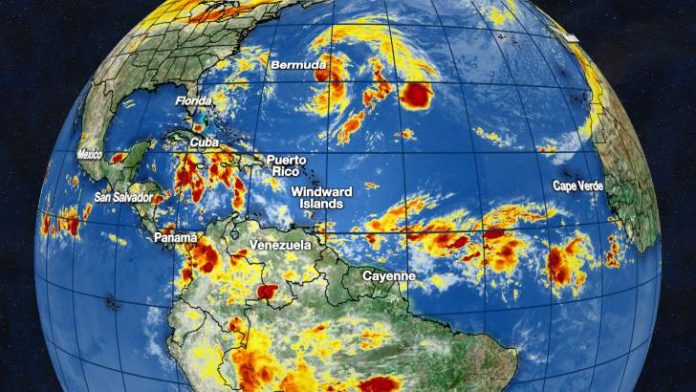Hurricane Epsilon’s maximum sustained winds dropped slightly as it moved northwest over the Atlantic Ocean on a path that should sideswipe Bermuda on Thursday.
Epsilon was a Category 2 hurricane with top winds of 110 mph (175 kph) Thursday morning as it swirled near enough for the National Hurricane Center to issue a tropical storm warning for the island. The Miami-based center said Epsilon was located about miles (415 kilometers) east-southeast of Bermuda, and was moving to the northwest at 7 mph (11 kph).
Forecasters said Epsilon should make its closest approach to Bermuda by Thursday evening. Gradual weakening is expected into the weekend. Large ocean swells could cause life-threatening surf and rip current conditions along the coast of New England and Atlantic Canada during the next couple of days, the hurricane center said.
Epsilon had gained 50 mph (80 kph) in wind speed in just 24 hours to become a major hurricane on Wednesday, officially qualifying as a rapidly intensifying storm. It was the seventh storm this season to power up this quickly.
Over the past couple decades, meteorologists have been increasingly worried about storms that blow up from nothing to a whopper, just like Epsilon. Forecasters created an official threshold for this dangerous rapid intensification — a storm gaining 35 mph (56 kph) in wind speed in just 24 hours.
This year’s season has had so many storms that the hurricane center has turned to the Greek alphabet after running out of official names.








